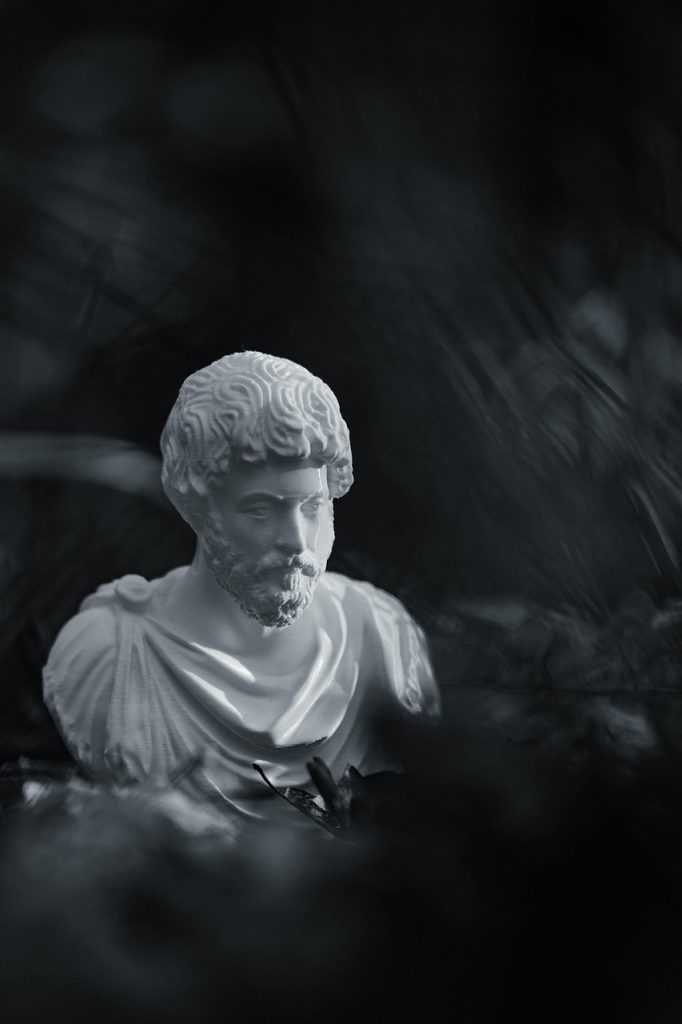A 2,000-year-old philosophy is more effective at treating depression and anxiety than modern psychology that costs thousands and keeps you dependent on therapists for years. What if the ancients already solved what modern therapy makes worse?
Stoicism created some of history’s most mentally tough individuals—Roman emperors, generals, and philosophers who faced extreme adversity with unbreakable composure. Modern psychology has created a generation needing therapy for everyday challenges.
The Results Speak
Marcus Aurelius used Stoic principles to lead the Roman Empire through plagues and wars while maintaining perfect mental composure. Epictetus transformed from slave to respected philosopher using Stoic wisdom.
Modern therapy patients often remain in treatment for years, becoming more focused on problems rather than developing tools to overcome them. The ancients faced death, exile, and torture with equanimity—modern people need therapy for social media comments.
Personal Responsibility vs. Victimhood
Stoicism teaches personal responsibility and mental control. Modern psychology often promotes victimhood and external blame for internal problems.
The Stoic principle of focusing only on what you can control eliminates anxiety from trying to control others and circumstances. Modern therapy encourages processing emotions while Stoicism teaches examining thoughts and choosing responses consciously.
Stoicism builds internal control—you determine your experience through choices. Modern psychology creates external control by attributing problems to trauma or brain chemistry beyond your influence.
Practical Tools That Work
Stoicism provides specific, actionable mental tools you can apply immediately. Therapy involves talking about problems without clear solutions.
Key Stoic practices:
- Negative visualization: Mentally prepare for setbacks to build resilience
- Dichotomy of control: Separate what you can and cannot influence
- Daily reflection: Morning and evening mental discipline
- Obstacle reframing: View setbacks as growth opportunities
Speed and Efficiency
Stoic principles can be learned and applied within weeks, creating rapid improvements. Marcus Aurelius’ “Meditations” contains more practical wisdom than years of therapy sessions.
Modern therapy involves years of exploring childhood without developing practical coping skills. Stoics learn to view obstacles as training, creating antifragile mindsets that strengthen under pressure.
Independence vs. Dependency
Stoicism teaches self-reliance and mental independence. Modern therapy often creates long-term dependency on therapists and external validation.
The Stoic goal is becoming your own philosopher and mental coach. Therapy culture teaches that you need professional help for normal challenges, creating learned helplessness.
Stoic practices strengthen with repetition and self-direction. Therapy benefits often diminish without continued professional support.
Cost and Accessibility
Stoicism is completely free and accessible to anyone who can read. Modern therapy can cost hundreds of thousands over a lifetime.
The greatest Stoic texts—Marcus Aurelius, Epictetus, Seneca—are available for free and contain more practical wisdom than expensive therapy programs. Ancient Stoicism worked for slaves, soldiers, and emperors alike.
Building Strength vs. Promoting Vulnerability
Stoicism builds mental toughness by deliberately exposing yourself to discomfort. Modern therapy culture treats normal stress as trauma and encourages seeing yourself as fragile.
Stoicism teaches that you become stronger by facing difficulties with the right mindset. Therapy often suggests that difficult experiences cause lasting damage.
The Stoic ideal is the sage—unshakeable by external circumstances. Modern psychology often pathologizes normal human experiences.
Action vs. Analysis
Stoicism emphasizes immediate action and behavioral change. Modern therapy gets stuck in endless analysis without concrete solutions.
Stoic philosophy provides clear guidelines for thinking and acting. The approach focuses on what you should do now, while therapy often dwells on understanding why you feel bad.
Timeless Wisdom vs. Changing Theories
Stoicism represents thousands of years of accumulated wisdom tested across cultures and circumstances. Modern psychological theories constantly change and often contradict each other.
Ancient Stoic principles have proven universal effectiveness. The great Stoic teachers lived their philosophy under extreme conditions, while many therapists have never faced serious adversity.
Start Applying Stoicism Today
You can begin immediately without years of training or expensive sessions:
- Reflect daily on what you can and cannot control
- Practice negative visualization for mental preparation
- Review your thoughts and responses each evening
- Read Marcus Aurelius, Epictetus, and Seneca
- Build mental toughness through voluntary discomfort
The Bottom Line
Stoicism offers everything modern psychology promises—mental resilience, emotional stability, practical guidance—but delivers it faster, cheaper, and more effectively.
While therapy takes years and costs fortunes while creating dependency, Stoicism provides immediate tools for mental strength and long-term self-sufficiency.
You don’t need a therapist to tell you how to think. You need a philosophy that teaches correct thinking and wise responses to any situation.
The wisdom to handle any life challenge has existed for 2,000 years and is available for free in the writings of history’s greatest philosophers.
